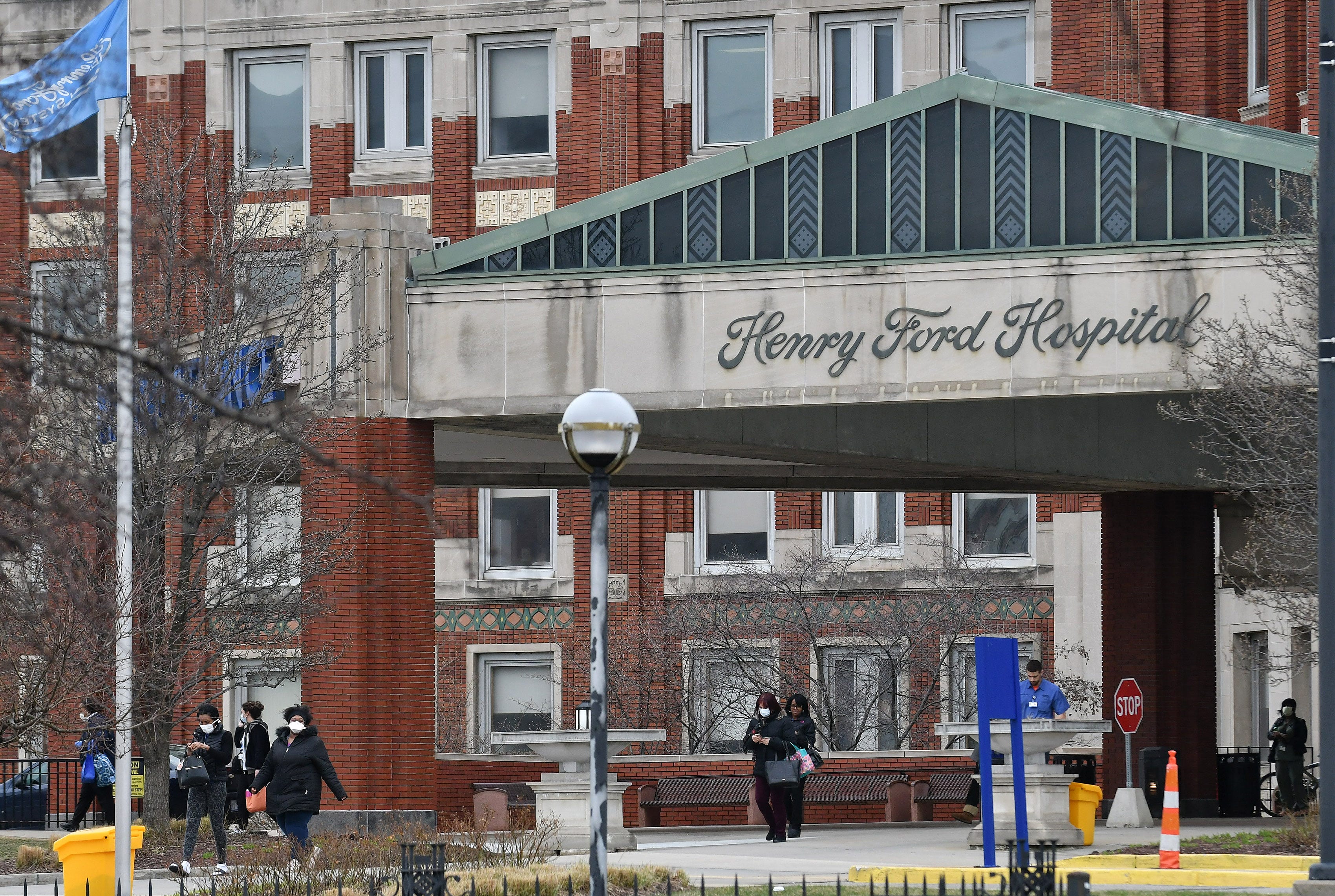Henry Ford hospitals trim beds due to staffing shortage
 Karen Bouffard
Karen BouffardDetroit-based Henry Ford Health System has trimmed 120 beds from its five hospitals because there aren't enough nurses or other workers to staff them, health system officials said Monday.
Michigan has been grappling with a shortage of hospital employees after a grueling year and a half of pandemic service that caused some workers to quit or retire earlier than they'd planned on.
"Unfortunately our health care system as well as other health care systems across the region, state and nation are facing unprecedented staffing challenges, only exasperated by this pandemic," Henry Ford's Executive Vice President and Chief Clinical Officer Dr. Adnan Munkarah said during a Monday media briefing.
"This does not mean by any means that our level of care or safety of care is impacted," Munkarah added."Our patients continue to receive the highest and safest level of appropriate care from our care teams."

Monday's announcement followed a Friday deadline for all of the health system's employees to be fully vaccinated or face termination. Hospital officials weren't able to provide exact numbers on Monday, but said the vast majority of employees have complied.
Hospitals are dealing with a shortage of nurses, a situation that existed before the pandemic, but was exacerbated by COVID-19. They say they're also short of lab technicians, medical assistants, housekeepers, pharmacists, food service workers and other personnel at a time when hospitals are at or near capacity.
Nationally, demand for intensive care and emergency nurses increased 186% during the last year, according to a study by health care hiring firm Incredible Health. Nationally, 80% of nursing leaders have reported an increase in nurse turnover due to the pandemic, said John Karasinski, spokesman for the Michigan Health and Hospital Association.
"A contributing factor to the staffing shortage prior to the pandemic was the rate of stress and burnout in the health care setting and the pandemic has exacerbated the issue," Karasinski said Monday.
"It is apparent that there are certain jobs, especially those dealing with direct patient care, where the burnout factor is especially pronounced. We have heard numerous anecdotal reports from our membership that the pandemic has led many health care workers nearing retirement age to leave the workforce."
Karasinski said the association doesn't comment on individual health systems. But staffing generally is one of the chief challenges faced by hospitals at a time when most are operating at or near capacity due to a combination of COVID-19 patients and those who put off care during the pandemic for conditions that now have become acute.
"We have seen a 16% increase in hospital ED (emergency department) visits during the latest quarter compared to pre-COVID-19 times in the second quarter of 2019," Karasinski said. "This pent-up demand is increasing the pressure on our hospitals and staff as people use the ED as a point of entry to the health care system.
"This has created a real crunch in staffing and was really felt during the last surge in Michigan."
Robert Riney, president of health care operations and chief operating officer, noted that Friday was the deadline for all employees to be fully vaccinated or face termination.
Henry Ford in late June became the first Michigan health system to mandate vaccination for all of its workers.
Last week, 51 employees sued the hospital system arguing that employees would be subjecting themselves to "potential harm and death" by getting the vaccine. But they withdrew the case on Friday, with some citing President Joe Biden administration's announced rule on mandatory vaccination for health care workers and certain business employees.
Riney said 98% of employees have complied with the mandate so far, and no one has been fired for failing to meet the requirement. Those who haven't made any effort to get vaccinated were suspended on Monday for three weeks without pay, but can get their jobs back if they decide to comply.
"We set the Sept 10 deadline to give our team members time to plan accordingly and get the resources they need to make an informed decision," Riney said.
"Those team members will then have until Friday, Oct. 1, to change their mind. If they receive their first dose before Oct. 1 they can immediately return to work," Riney said. "Should a team member decide not to get vaccinated by Oct. 1 they will voluntarily resign from our organization.
kbouffard@detroitnews.com
Twitter: @kbouffardDN